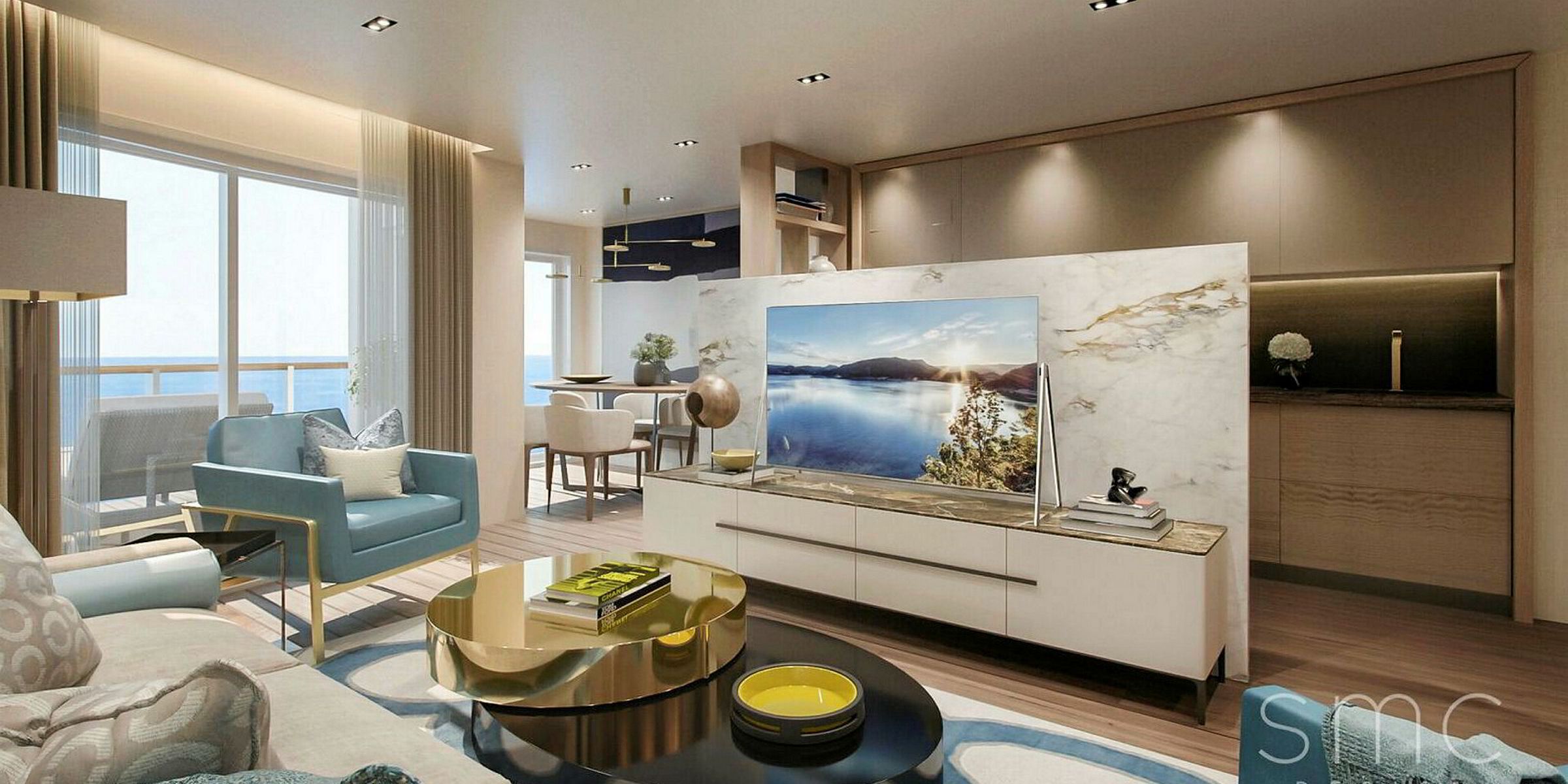Two former residential developers from Australia plan to take advantage of the ample older cruise tonnage in the market, by converting passengerships into homes on the sea.
“There’s no shortage of tonnage out there, and it’s a massive problem we recognised two-odd years ago. We just found a market for it to fit into,” company chairman and co-founder Alister Punton said.
In doing so, Punton and his business partner Shannon Lee developed Storylines, a cruiseship that allows retirees and working professionals to live at sea while voting for ports of call via an app.
Two years later, the founders are talking to a number of cruise lines about selling their ageing ships to Storylines, instead of scrapping them or turning them into lower-price cruise alternatives.
They recently bought a used vessel from an unnamed second-tier cruise operator, which will manage the 200-metre ship in a joint-venture partnership.
Storylines is refitting the vessel for $40m with help from a private investor and shipyard, whose names have not been disclosed, Punton said.
“For the cruise companies, it’s an exit strategy for their vessels that they can forward-plan,” he said. “And they can advance it to their shareholders.”
He added that crews would be retained to look after the vessels as part of the arrangement.
Once complete, the 920-passenger liner will carry 620 residents living in 310 “cabin condos”.
The units will range in price from $155,000 for traditional cabins to up to $1.4m for a 58-square-metre living space.
Confident with their idea, Punton said they plan to buy a second ship of similar size that young professionals — namely in the tech space — can use as a travelling workplace and home.
“The interest level we are seeing is huge, especially among millennials,” Punton said.
The vessel will allow incubator groups from various industries, including tech giants, to rent out units as living and work spaces, while they direct the ship to regions relevant to their business, he said.
"They’ll be going out on work excursions and perhaps meeting with local business leaders,” he said.
Private funding
Punton insisted that funding from the second ship would come from private investors and joint-venture arrangements.
Given Storylines plans to partner with established cruise companies, Punton said it could have a fleet of up to 40 or more vessels one day. “It’s just all there,” he said.
He added that the company would first focus on catering to demand in the US, UK and Australia, where “thousands” of potential customers have already shown interest, before branching out to other parts of the world.
“China’s not on the cards now, but it definitely is in the future,” he said. “For us right now, it’s about doing this well.”
Punton and Lee came up with the vision for using older cruiseship tonnage as floating homes when they saw retirees were not getting what they wanted out of their retirement.
“People felt they didn’t get what they deserved after working hard most of their lives,” Punton said.
The first vessel will have separate kitchen and laundry areas, as well as a pool, bars, a culinary school, movie theatre, medical facility, golf simulator, running track and other amenities.
Use of these perks will be covered by a monthly fee starting at $2,290 per person, depending on the size of unit.
“For us, it’s about the experience... because they take in the culture of each destination,” he said.
Residents will have the option to rent cabins either quarterly or for spans of two, three, four or five years, or buy them outright.
He said the company would provide food, alcohol, onboard activities, excursions and other offerings for a monthly fee.
He added that the ship would also have a 30-metre support vessel for volunteers to scout out future destinations, and bring back cooks or street performers who will travel with passengers to that port of call.
“They can go off and find all these unique experiences,” he said. “It’s a really culturally immersive experience.”



